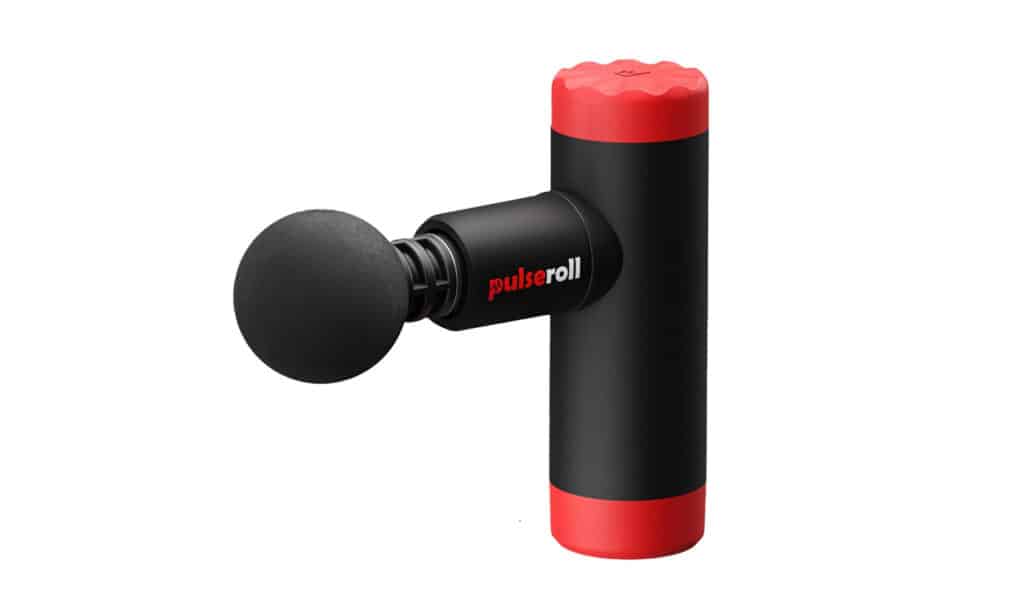

Trying to figure out the pace you need to maintain for your next marathon?
A marathon running pace calculator can help you determine how fast you need to run each mile or kilometre to hit your target finish time. In this article, we’ll show you how to use a marathon running pace calculator and explain why knowing your optimal pace is crucial for your race day success.
Marathon pace is the cornerstone of any successful marathon strategy. It refers to the average speed a runner aims to sustain over the entire 26.2 miles of a marathon. Unlike the bursts of speed you might use in a sprint or the steady pace of a leisurely jog, marathon pace is a finely tuned balance between speed and endurance.
Your marathon pace dictates how you train and race. The right pace helps you develop a targeted training plan, optimise performance, and avoid burnout. Elite runners calculate their marathon pace to hit target times without exhausting their energy reserves too early in the race.
Next, we’ll explore what marathon pace entails and why it’s vital to your success. We’ll break it down into manageable parts, making it easier to incorporate into your running routine and training schedule.
Marathon pace is the specific speed at which a runner aims to complete the marathon distance, calculated in minutes per mile or kilometre. This pace is distinct from other types of running, such as tempo runs, which are faster but shorter in duration. Marathon pace is typically a sustainably challenging speed, often described as a 5 out of 10 on the perceived effort scale.
For example, if you’re training for a half marathon, your marathon pace might be slower than your tempo run pace but faster than your easy running pace. This balance ensures you can maintain your speed over the full marathon distance without hitting the dreaded “wall” too early.
This pace is the first step in creating an effective marathon training plan.
Your marathon pace is more than just a number; it’s a key component of your training and race strategy. It aids in creating targeted training plans and enhances overall race performance by allowing you to train more effectively and confidently. Familiarity with your marathon pace enhances training effectiveness and helps optimise race performance.
For first-time marathoners, understanding marathon pace boosts confidence and ensures you maintain the intended speed during the race. First-timers should aim for a pace that aligns with their training and fitness levels, often around 4 to 5 hours to complete the marathon. This approach helps you finish strong and enjoy the race experience.
A marathon running pace calculator is an invaluable tool for any runner. It can convert distance and time into pace. Additionally, it can also change pace and distance into time, as well as time and pace into distance. Inputting your average pace allows the calculator to predict your race time, helping you stay on track during the run. This allows you to set realistic goals and adjust your training accordingly.
A pace calculator helps you determine the necessary pace for finishing events like a half marathon in a target time. This training pace calculator ensures that your training aligns with your race day goals, providing an accurate prediction of your finish time based on your running speed.
Here at Coach the Run, we provide a free Running Pace Calculator designed to help you calculate your ideal marathon pace and estimate your finish time with ease. Click here to get started with our easy-to-use Running Pace Calculator and take the first step in planning your marathon race strategy.
Here’s how to input your data correctly and interpret the results to maximise your training efforts.
Input your target race time and marathon distance into our Running Pace Calculator to determine your ideal running pace. The running pace calculator helps determine your training pace based on your target race time. You can choose between metric or imperial units for your inputs, which include minutes per mile or minutes per kilometre.
Running pace, measured in minutes per mile or kilometre, is calculated by dividing time by distance. This average pace helps you understand the speed you need to maintain throughout the marathon to achieve your goal time.
Entering your goal time and distance gives you a clear pace target for both training and target race distance on race day.
The pace result shows the average speed needed to finish a specific distance within your target time. Understanding pacing reduces the chance of injury and improves run-time accuracy. For instance, to achieve a marathon finish under four hours, runners should maintain an average pace of about 9 minutes and 9 seconds per mile.
Comparing recent race times with your target pace allows you to adjust your training to ensure progress towards your goal. This information is crucial for setting realistic expectations and making necessary adjustments to your training plan for the next race.
Adjusting marathon pace on race day is crucial for achieving time goals under varying conditions. Weather conditions like temperature and humidity can impact endurance, requiring pace adjustments. For example, hot and humid conditions generally require slowing down your pace to avoid fatigue.
Course difficulty, including elevation changes and terrain, affects race pace. Runners may need to adjust pace for elevation climbs or challenging sections to maintain performance.
Personal fitness levels, including recent training performance and fatigue, should also be considered when setting your race day pace. Peak condition allows for more aggressive pacing.
Effective training incorporates your marathon pace into various runs to ensure familiarity and comfort by race day. This requires strategic planning for optimal performance. Integrating marathon pace into training optimises race preparation and performance.
Incrementally increasing long run distances enhances endurance and pace over time. Here’s how to set up a training plan, incorporate tempo runs and long runs, and monitor your progress to stay on track for your marathon goals.
A personalised training plan should include your marathon pace for effective preparation. First-time marathoners should set achievable pace goals based on their current fitness level and realistic training expectations. Consistency is key; gradually increase distance and intensity to include goal marathon pace.
High-intensity workouts elevate your heart rate, increasing cardiovascular endurance for marathon running. A mix of easy runs, tempo runs, and long runs will build the strength and endurance needed for marathon success.
Here at Coach the Run, we provide a variety of marathon training plans crafted by our Head Coach and London Marathon winner, Mike Gratton. Each plan is personalised to suit your individual goals and abilities, delivering targeted, effective training to help you achieve marathon success.
Looking for a fully tailored training plan? Let Mike Gratton design a personalised program just for you.
Long runs are essential for building the endurance needed for marathon distance. Start long runs at a slower pace and gradually increase to marathon pace to mimic race conditions.
Tempo runs improve your ability to sustain a challenging pace over time, enhancing both endurance and speed. They help increase your lactate threshold, making it easier to maintain marathon pace during the race.
Balancing these different runs prepares your body and mind for the demands of marathon running.

Regularly assessing training runs helps identify if pace adjustments are necessary based on performance. Tracking progress involves adjusting paces based on feedback and adapting to recovery needs. Many GPS running watches now offer features to track pace and performance metrics. The Coros Pro 3 running watch is our top recommendation for precisely tracking pace and heart rate.
Apps and smartwatches provide real-time feedback on pace during runs, helping you stay on track and adjust as needed. Regular benchmark runs will show if your training adjustments are effective, ensuring consistent progression towards your marathon goals.
Improving marathon pace requires a combination of cardiovascular training, strength training, and speed work. Interval training can significantly enhance marathon speed by improving overall running efficiency.
Here are strategies for enhancing your marathon pace through various training techniques.
Regular running improves the heart’s efficiency, allowing it to pump more blood per beat. Cardiovascular fitness significantly affects performance and endurance during races. An efficient cardiovascular system leads to better oxygen delivery to muscles, enhancing endurance and overall performance.
Regular cardio workouts strengthen your cardiovascular system, making it easier to maintain marathon pace over long distances. This foundation is critical for improving marathon performance.
Strength training enhances muscle strength, enabling marathon runners to maintain proper form and reduce injury risk. Incorporating strength training improves running economy, leading to faster marathon times. Speed work, like interval training, helps runners sustain faster paces over longer distances.
Combining strength training and speed work results in comprehensive fitness, enabling runners to perform optimally across different race conditions. This dual approach enhances both physical strength and pace, preparing athletes for diverse course terrains.
Lactate threshold is the point where the body shifts to anaerobic metabolism, increasing lactic acid production. Managing lactic acid build-up is crucial for maintaining marathon lactate threshold pace, as excessive lactic acid causes muscle fatigue and slows you down.
Effective recovery strategies, including proper nutrition, hydration, and rest, are essential for managing lactic acid and preparing your body for the next workout. Incorporating these strategies into your training plan helps you recover faster and maintain high performance.
Marathon goals vary widely among runners; set realistic targets based on individual fitness levels and previous race experiences. Common marathon pace targets depend on individual experience and fitness levels.
Whether aiming for a four-hour marathon or a sub-3-hour finish, understanding the required pace is crucial.
To achieve a 4-hour marathon, maintain an average pace of approximately 9 minutes and 9 seconds per mile. Consistent training at or near this pace builds the necessary endurance and speed for the marathon distance. Incorporating tempo runs and long runs helps improve the endurance and speed needed to meet the 4-hour marathon goal.
One success story involves a client under our Head Coach Mike Gratton, who achieved a London Marathon Qualifier with a personal record, showcasing the effectiveness of a structured training plan. This demonstrates the importance of dedication and a well-planned training strategy for hitting a 4-hour marathon.
To achieve a sub-3-hour marathon, runners need to maintain a pace of approximately 4 minutes and 16 seconds per kilometre or 6 minutes and 50 seconds per mile. This requires consistent, high-intensity training with a strong focus on both speed and endurance. Learn more about how to hit this big marathon target in our sub-3-hour marathon guide.
First-time marathoners should focus on increasing speed until they can run at their target pace. Setting realistic goals avoids burnout and injury. For new runners, completing the marathon is a significant achievement; focus on finishing strong rather than hitting a specific time target.
By gradually increasing their distance pace and incorporating structured training plans, first-timers can build the confidence and endurance needed to cross the finish line. Emphasizing enjoyment and personal accomplishment over strict time goals will make the marathon experience more rewarding.
Running Pace Calculators are essential tools to determine your required pace for various race distances, helping you achieve your specific finish time goals. In addition to marathon pace, these calculators can pinpoint your theoretical speed for distances such as 5k, 10k, half marathon, and ultramarathon.
Various calculators are available, catering to different running needs, including run pace, run distance, and run time calculators. Why not try our free Coach the Run Running Pace Calculator to calculate your marathon pace and plan your training accordingly?
Utilising these tools can empower you to calculate and maintain your marathon pace, ultimately enhancing your race performance.
Popular apps like Strava and MapMyRun help runners analyse their marathon pace through comprehensive tracking tools and community features. Applications such as Runkeeper and Garmin Connect are designed to adaptively monitor each mile, optimising pace performance.
Wearable devices like the Garmin Forerunner and Polar Vantage provide advanced metrics and pace tracking directly on the wrist. These smartwatches, equipped with GPS, allow for efficient pace management during runs. Real-time feedback and audio cues from these devices help runners adjust their speed as needed without constantly monitoring their device.
Understanding and mastering your marathon pace is crucial for any runner aiming to achieve their race goals. From using a pace calculator to creating a tailored training plan, integrating tempo runs and long runs, and utilising the right tools and resources, each step contributes to your overall success.
So hit your marathon pace goals and unlock your full potential with our free Coach the Run Running Pace Calculator. Simply enter your desired distance, finish time goal, and training schedule to receive a personalised pacing plan.
With dedication, proper training, and the right tools, you can conquer any marathon pace goal. Remember, the journey to mastering your marathon pace is as rewarding as the race itself. Stay dedicated, trust the process, and enjoy the run!
To calculate your marathon pace, simply use our free Coach the Run running pace calculator where you can input your target race time and distance to find your pace per mile or kilometre. It’s a quick and straightforward way to nail down your goal pace!
Knowing your marathon pace is crucial because it helps you train effectively and manage your speed during the race, ensuring you perform at your best. This insight allows you to align your training to meet your goals.
Tempo runs are crucial for boosting your lactate threshold and improving your speed, allowing you to maintain your marathon pace more comfortably over longer distances. They’re a game-changer in your training routine!
Using apps like Strava or wearables like the Coros Pro 3 can really help you keep an eye on your marathon pace in real-time. They offer great tracking features that can guide you as you run!
To tackle race day effectively, pay attention to the weather, terrain, and your current fitness level. For instance, slow it down in heat or humidity, and consider any hills on the course to find a pace that suits those conditions.
Join our mailing list to stay up to date with the latest UK running events, training tips, and exclusive offers on running products. Rest assured, we value your privacy and would never dream of selling your address. Sign up now…
Share this article
Welcome to our Coach the Run’s elite marathon training plan. If you are looking to...
How many tempo runs should I run in a week, if I generally run 5...
Designed by our head coach, Mike Gratton, winner of the 1983 London Marathon, this 12-week...
Are you a runner experiencing a lack of motivation, a loss of interest, or even...
Welcome to the world of heart rate variability (HRV). In this guide, we will be...
A story from our co-founder, Stu Taylor now in his 40’s, and his ambitious journey...
We’re here to make sure you’re up-to-date with the latest running tips, events and product discounts – we’ve always got your back! Rest assured, we value your privacy and would never dream of selling your address.
BONUS: Sign up today and receive a FREE code for our Sub-4-Hour Marathon Plan
Your privacy settings
Manage Consent Preferences
Necessary
Analytics
Embedded Videos
Marketing
Facebook Advanced Matching
Facebook CAPI